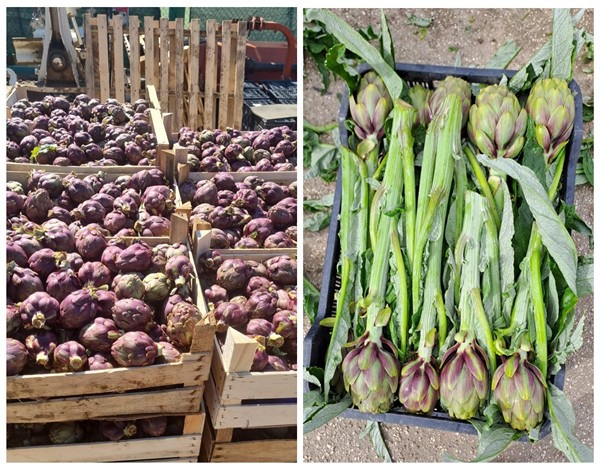The Brindisi Igp artichoke campaign is in its final stages. There are insignificant quantities for the fresh market, and the remaining flower heads are being sent entirely to the processing industry, also caused by the gradual rise in temperatures and high humidity that have compromised quality standards.
Ermanno Barletta of Biemme Srl, a company in the Apulian province of Lecce that supplies fruit and vegetables to Italy's general markets and has several hectares planted with artichokes, explains more about this situation.
"While we are currently wrapping up the last shipments for the sale of fresh produce at around €0. 15-20/head (quotations referred as producer prices), for the processed, on the other hand, the harvest will end in about two weeks, thus putting an end to a campaign characterized by few lights and many shadows, in which there has been a lack of interest in a popular and much sought-after product, but no longer able to provide economic satisfaction as it once did."
 Pictured on the left, flower heads processed for industry (without stems). On the right, last crates destined for the general markets.
Pictured on the left, flower heads processed for industry (without stems). On the right, last crates destined for the general markets.
For several days already, prices charged by industries have been hovering around €0.07/piece. "On the price front, nothing has changed," continues Barletta. We've had similar prices for about a decade, but in the face of an increase in production costs. The price, for a portion of the campaign, is not satisfactory and we are not competitive with foreign crops."
The Apulian entrepreneur explains that a change is taking place regarding the purchasing habits of families, which seems to affect artichokes, among other products. "If during the lockdown, many consumers rediscovered cooking at home, with the end of the pandemic emergency there has instead been a decrease in sales for some horticultural references, such as artichokes. Finally, the decline in consumer purchasing power is affecting sales. People try to save money on foodstuffs or sometimes prefer foreign productions because they are cheaper, thus compromising market balances."
